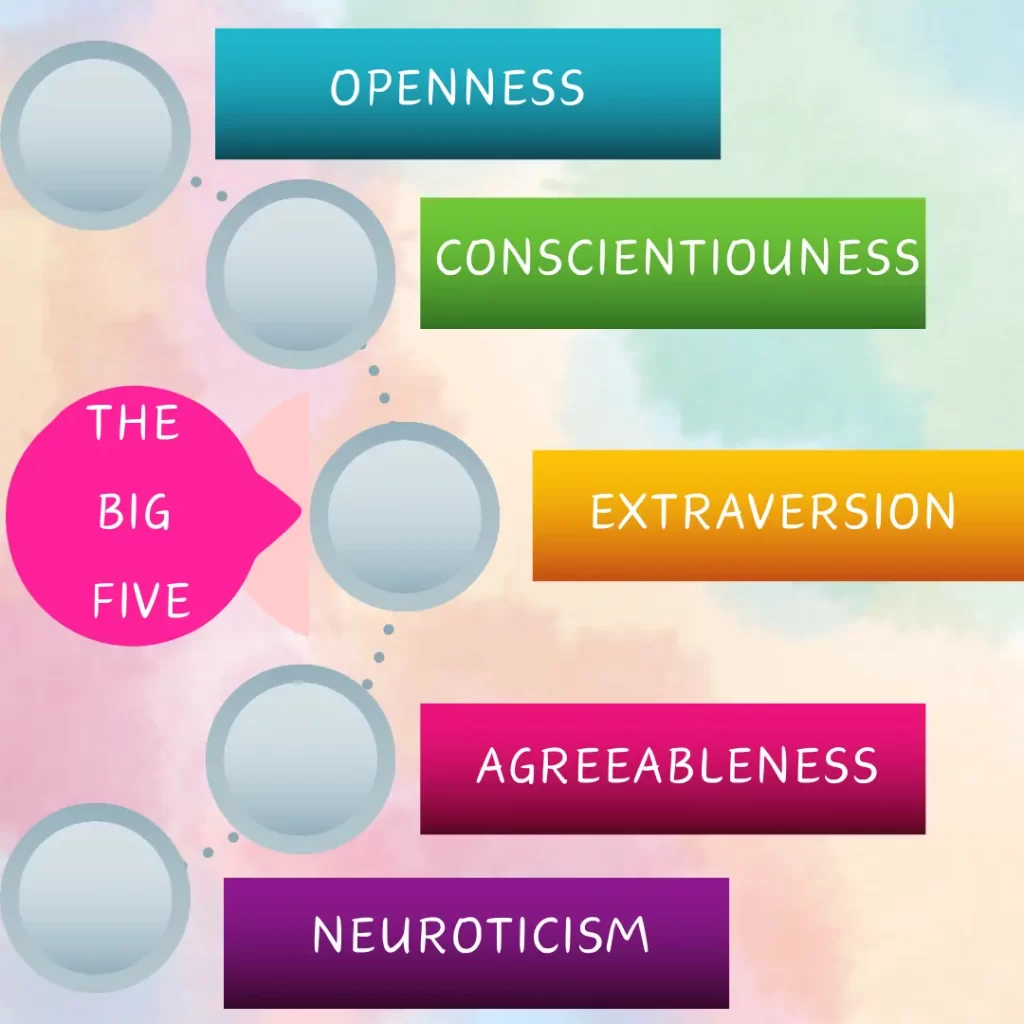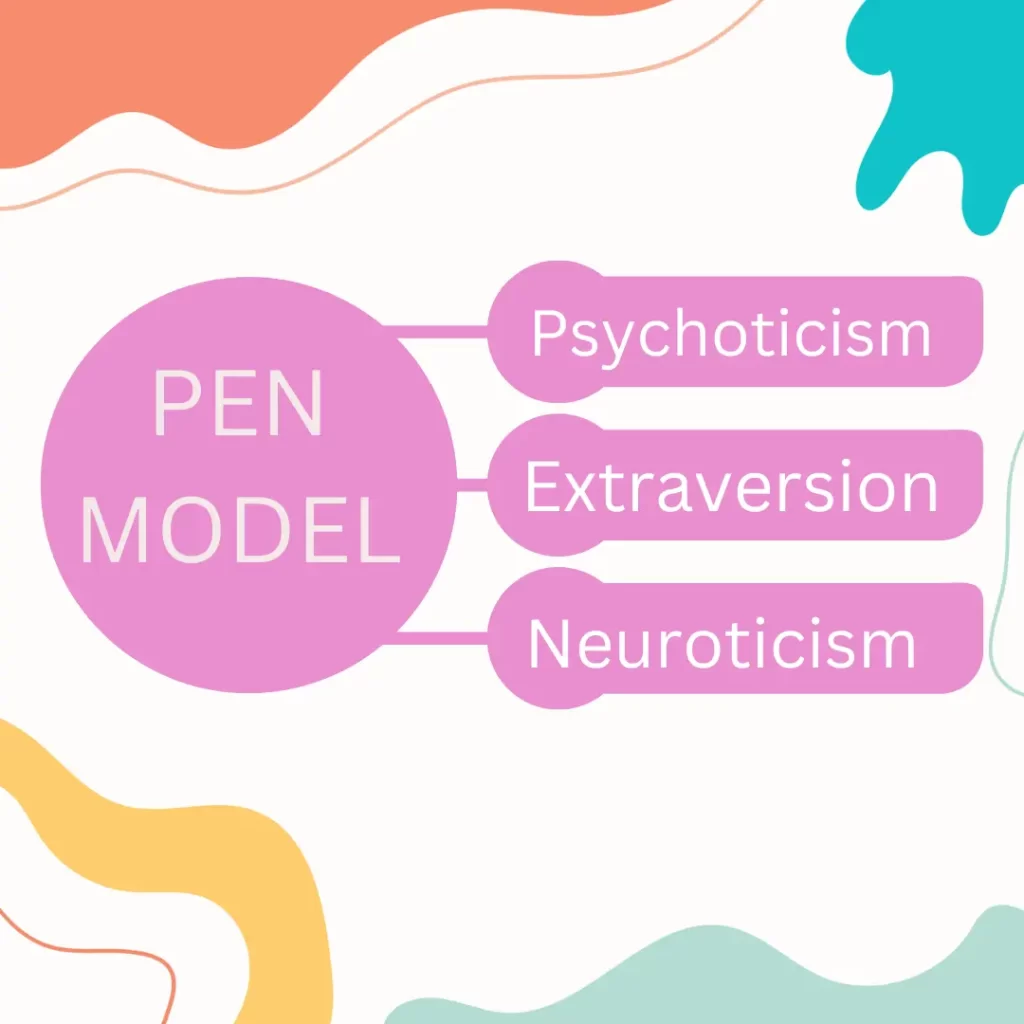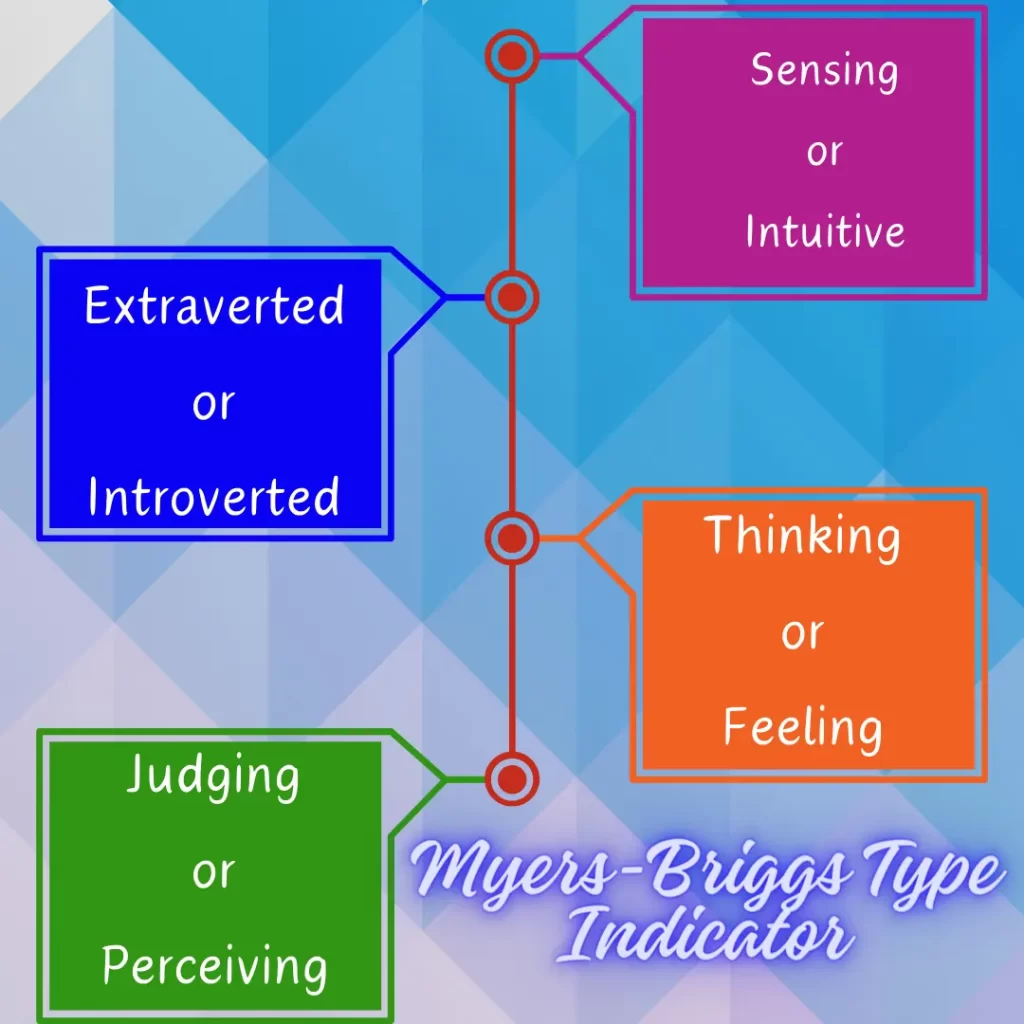Role Of Personality in Choosing a Career
It is absolutely true to state that the role of an individual personality traits makes them more adaptable and comfortable to certain jobs. Selecting a career on the basis of your personality feature can result in a pleasant outcome. For example, if an individual is introvert, and if he chooses to become an anchor, just because it has a greater scope, tell me, can he thrive in this profession for a longer period of time?
I believe that if you are an anchor, then you should have excellent communication skills, in short, you should possess an extroverted personality.
Whenever, we hear such term in our day-to-day life, the first things that comes to our mind is of famous personalities, like Virat Kohli; Sachin Tendulker or Narendra Modi, etc. Not only this, we inspire from them and try to become like them, and in this process, we might lose our uniqueness. However, we never try to understand that what does personality actually mean?
What is Personality?
The term personality can be expressed as unique patterns of one’s thinking, feelings and behavior that differentiate an individual from another. In simple language, we can declare that personality means that how the person thinks and behaves, what is their attitude towards other people, groups, objects, events and culture. We can also state that this term defines human individuality.
It can also be defined in a way that how an individual behaves in a social environment, like, whether, they are an extrovert or introvert. This term also includes one’s abilities and skill set, and how they solve or handle various problems that occur in their life.

According to the American Psychological Association, “personality refers to the enduring behaviors, traits, emotional patterns, and abilities that make up a person’s response to the events of their life.”
Furthermore, during research, I believe that the personality seems to be consistent with time, meaning, person usually behave more or less in a same manner across different situations. In addition, personality becomes generally stable during adulthood.
In addition to, I am of the opinion that if any individual chooses a career that his incompatible with their personality, then it might result in a stressful, and unrewarding working environment. During career counselling session, experts generally take administer personality test in order to help the person what kind of job will suits best for him/her.
Types of Personality Test
Usually, following types of personality test are generally used in career counseling sessions:
Big Five Personality Theory

A model of personality traits produced by the renowned psychologist, name, McCrae & Costa, that describes five basic personality dimensions. These five dimensions are also known as the Five-Factor model. Moreover, these five elements can be remembered by using the acronym , OCEAN, in which each of the letter is the first letter of one of the five elements of personality traits.
Openness to Experience
This personality element depicts characteristics, like, being imaginative, or tend to have wider range of interest. Generally, such people are inquisitive and acquisitive to learn new things and enjoy new experiences and events.
Furthermore, such people are more adventurous, and have creative notions. On the other hand, people, who are at the other end of this dimension are more traditional, might follow a set pattern of activities.
Career Choices – Entrepreneurs, Artist, musicians, etc.
Conscientiousness
This personality component displays features like being organized, show behavioral patterns which are goal directed, and generally plans every action. It can also be state that such people think too much about how their behavior influence others. Also, they are quite mindful of meeting their deadliness. On the other hand, people low on this trait might procrastinate to get things done, might be clumsy, and spontaneous.
Career Choice: Doctors, Engineers, CEO’s, etc.
Extraversion
This dimension can also expressed as extroversion, and here the traits include – sociability, assertiveness, talkative and able to express their emotions. Such people are outgoing and are generally comfortable and enjoy in social gatherings. On the other hand, there are people who are introvert, meaning they are shy, might not enjoy social gatherings, and enjoy solitude. Such people might be reliable and usually like the organized mode of life.
Career Choice: Anchor, Radio Jockey, Sales executive etc.
Agreeableness
This elements comprises of traits like, trust, kind, affection, in other words, people who show pro-social behavioral patterns. However, people who are low in this trait might not be trustworthy, rather can be a manipulative individual.
Career choice: Social workers, counselors, etc.
Neuroticism
An individual who is generally moody, couldn’t able to control their emotions, might get easily upset, and frustrated. In other words, we can state that they are worrying individuals, and are overly emotional
However, this trait is something very negative, and people who are low on this dimension are more emotionally stable.
Eysenck Personality Theory

Eysenck proposed three major independent personality traits, namely, Psychoticism (P), Extraversion (E), and Neuroticism (N), and therefore, it is also called as PEN model. According to him, one’s personality can be describe on the basis of following three dimensions:
Psychoticism
Here, Psychoticism refers to people who are generally lacks empathy, are antisocial, might be violent sometimes, and are aggressive and impulsive. Unlike the other two dimensions of this model, psychoticism does not have an inverse extreme, rather the intensity of this element differ from person to person.
Extraversion
A second dimension, which means having traits, like sociable, impulsiveness, talkative, assertiveness and can able to express their emotions. However, on the other hand, there are people who are introvert, like they are less social, and might be more pessimistic as compared to extrovert.
Neuroticism
A kind of trait that can be very well associated with anger, anxiety, distress, irritability etc. According to Eysenck, neurotic people generally react in a more exaggerated way in normal situations. Its’ their tendency to easily become upset or emotional, and find it quite difficult to return to a normal level of their emotions.
Myers-Briggs Type Indicator

This personality questionnaire has been developed by Isabel Myers and Katharine Briggs. One of the most widely used personality assessment, comprises of 70 items, that generally ask an individual that how he/she feel or act in a particular situation or event. So, there is no right or wrong answer, and on the basis of their answers, people generally classified as:
- Extraverted or Introverted (E or I)
- Sensing or Intuitive (S or N)
- Thinking or Feeling (T or F)
- Judging or Perceiving (J or P)
All of terms are described in a following way:
Extraverted versus Introverted
Extroverted individuals are quite talkative, enjoy social gatherings, and assertive. However, introverted ones are those who are shy, or who are prefer to live alone or enjoy solitude, might not able to express their emotions.
Sensing versus Intuitive
Sensing people are usually practical, they never live in a imaginative world, rather focus on facts, also, they learn from their senses, that means they learn from their experiences.
On the other hand, Intuitive people are usually focused more on their intuitions or unconscious process, sometimes, live in a imaginative world, and believe abstract theories.
Thinking versus Feeling
Thinking people always use logic and reasons in order to handle any issue. That means, that are extremely dependent on facts and figures. While making any decision, they become more practical rather than emotional.
On the other hand feeling types refers to those individuals who are rely on their personal values, and usually becomes emotional while arriving at any conclusion or making any decision.
Judging versus Perceiving
Judging people are those who always wants everything in a structured manner. However, perceiving are those who are quite flexible and spontaneous. They are open minded, flexible to many situations.
On the basis of these classification, 16 kinds of personality types can be formed
ENFJ's : The Giver
Such people have the following traits:
- Genuine, organized, socially intelligent, harmonious, honest, sensitive, creative, and craves validation
- Genuinely and warmly interested in people
- Value people’s feelings
- Cherish structure and organization
- Value harmony,
- Excellent interpersonal skills
- Dislike impersonal logic and analysis
- Strong organizational capabilities
- Loyal and honest
- Creative and imaginative
- Enjoy variety and new challenges
- Get personal satisfaction, if help somebody
- Extremely sensitive to criticism and discord
- Such individuals need approval and appreciation from others to feel good about themselves.
ENTJ’s: The Executive
Such people have the following traits:
- Logical, goal oriented, good leaders, intolerant towards incompetence, structured, quick decision maker, articulate
- Strategic and logical
- Future-oriented – long range planners
- Natural leaders
- Impatient with inefficiency and incompetence
- Want things structured and orderly
- Excellent verbal communication skills
- Dislike routine, detail-oriented tasks
- Self-confident
- Decisive
ENFP's: The Inspirer
Such people generally have the following traits:
- Goal driven, intuitive, dislikes a set routine, active listener, cannot be controlled
- Project-oriented
- Bright and capable
- Excellent interpersonal skills
- Extremely intuitive and perceptive about people
- Service-oriented;
- Future-oriented
- Dislike performing routine tasks
- Need approval and appreciation from others
- Cooperative and friendly
- Creative and energetic and quite spontaneous
- Well-developed verbal and written communication skills
- Natural leaders, like in inspiring others rather than controlling them, able to see potential in others.
- Resist being controlled by others
- Can work logically and rationally –
- Usually able to comprehend complex concepts and theories
ENTP’s: The Visionary
Such people generally have the following traits:
- Flexible, ingenious, generates notions and theories, natural leaders, dislikes being confined, inquisitive
- Project-oriented
- Enjoy generating notions and theories
- Creative and ingenious
- Bright and capable
- Flexible and Diverse
- Excellent communication skills
- Enjoy debating issues with other people
- Excellent people skills
- Natural leaders,
- Resist being controlled by people
- Lively and energetic; can able to motivate others
- competent
- Logical, rational thinkers
- Able to comprehend complex concepts and theories
- Enjoy solving difficult problems
- Dislike confining schedules and environments
- Dislike routine, detailed tasks
- Inquisitive and versatile nature
ESFJ’s: The Caregiver
Such people generally have the following traits:
- Loyal, structured, down-to-earth, needs approval, spontaneous, cooperative, interactive
- Organized
- Enjoy creating order, structure and schedules, having conscientiousness trait
- Enjoy interacting with people
- Warm-hearted and sympathetic
- Extremely cooperative, good team members
- Practical and down-to-earth
- Value peaceful living and security
- Enjoy variety, but work well with routine tasks
- Need approval from others
- Live in the here and now – dislike theorizing or planning about the future
ESFP’s: The Performer
Such people generally have the following traits:
- Mindful, tactful, independent, excited by new experiences, logical, spontaneous, bond formers, strong aesthetic sense
- Live in the present moment
- stimulated and excited by new experiences and events
- Practical, realistic and tactful
- Warmly interested in people
- Know how to have a good time, and how to make things pleasurable for others
- Independent and resourceful
- Spontaneous – seldom plan ahead
- Hate structure and routine
- Dislike theory and long written explanations
- Feel special bond with children and animals
- Strongly developed aesthetic appreciation for things
- Have a strong common sense
ESTJ’s: The Guardian
Such people generally have the following traits:
- Natural leaders, values traditions, dependable, straight forward, wholesome, loyal, driven
- Natural leaders- like to have control on others.
- Value security and tradition
- Loyal
- Hard-working and dependable
- Athletic and wholesome
- Have a clear set of principles, beliefs, and value system which they live by
- Excellent organizational abilities
- Enjoy creating order and structure
- Quite thorough
- Straight-forward and honest
- Driven to fulfill their duties
ESTP’s : The Doer
Such people generally have the following traits:
- Logical, active, show off, solution formulator, observant, energetic, spontaneous
- Action-oriented
- Live in the present moment
- Dislike abstract theory without practical application
- Like to see immediate results for their efforts
- Fast-paced and energetic
- Flexible and adaptable
- Resourceful
- Seldom work from a plan – make things up as they go
- Highly observant
- Excellent memory for details
- Excellent people skills
- Excellent ability to view an immediate problem and quickly formulate a solution
- Like adventurous activities
- May be flashy or showy
- Like initiating things
- Skillful negotiators
INFJ’s: The Protector
Such people generally have the following traits:
- Protector intuitive, ethical, complex, apathetic, creative, stubborn, compassionate
- Intuitively understand people and situations
- Idealistic
- Highly principled
- Complex and deep
- Natural leaders
- Sensitive and compassionate towards people
- Service-oriented
- Future-oriented
- Value deep, authentic relationships
- Reserved about expressing their true selves
- Dislike dealing with details unless they enhance or promote their vision
- Constantly seeking meaning and purpose in everything
- Creative and visionary
- Can work logically and rationally
- Seek harmony and cooperation
INFP’s: The Idealist
Such people generally have the following traits:
- Warm, goal-oriented, creative, sensitive, loners, seeks well deserved appreciation , flexible
- Strong value systems
- Warmly interested in people
- Service-oriented,
- Future-oriented
- Growth-oriented;
- Creative and inspirational
- Flexible
- Sensitive, complex and creative
- Dislike dealing with details and routine work
- individualistic nature
- Excellent written communication skills
- Prefer to work alone
- Value deep and authentic relationships
- Want to be appreciated by people for who they are
INTJ’s: The Scientist
Such people generally have the following traits:
- Creates logics through theories, likes challenges, strongly intuitive, reserved, independent workers, hates routine tasks
- Able to grasp extremely complex theoretical and troublesome material
- Driven to form order and structure from theoretical abstractions
- Future-oriented
- See the global, “big picture”
- Strong insights and intuitions, which they trust implicitly
- Value their own opinions over others
- Love difficult theoretical challenges
- Bored when dealing with mundane routine
- Value knowledge and efficiency
- Have very high standards for performance
- Reserved and detached from others
- Calm, collected and analytical
- Extremely logical and rational
- Original and independent
- Natural leaders,
- Creative, ingenious, innovative, and resourceful
- prefer to work alone, and might do better in that situation
INTP’s: The Thinker
Such people generally have the following traits:
- Seeks the truth, eccentric, not leader-material, detached, problem solvers, values knowledge above everything, autonomous
- Love theory and abstract ideas
- Truth Seekers – they want to understand things by examining underlying principles and structures
- Value knowledge and competence above all else
- Have very high standards for performance, which they apply to themselves as well.
- Independent and original, possibly eccentric
- value autonomy
- Have no desire to lead or follow
- Dislike mundane detail and activities
- Not particularly interested in the practical application of their work
- Creative and insightful
- Future-oriented
- Usually brilliant and ingenious
- Trust their own insights and notions above all others
- Live primarily inside their own minds, and may appear to be detached from outside world.
- Usually enjoy creative problem solving.
ISFJ’s: The Nurturer
Such people generally have the following traits:
- Detail oriented, highly observant, good sense of space, values stability, kind, considerate
- Highly observant and quite aware of other people’s feelings and reactions
- Excellent memory for details which are significant to them
- Excellent sense of space and function
- work for long hours and hard to see that jobs get done
- Stable, practical, down-to-earth – do not like or enjoy working with theory and abstract thoughts
- Value security, tradition, and peaceful living
- Service-oriented:
- Kind and considerate
ISFP’s: The Artist
Such people generally have the following traits:
- Practical, loyal, individualistic, unconventional, sensitive, lives in the moment, dislikes routine tasks
- Live in the present moment
- Enjoy a slower pace
- Quite practical
- Faithful and loyal to people and ideas which are important to them
- Individualistic, having no desire to lead or follow
- Take things seriously, although they frequently appear not to
- Special bond with children and animals
- Quiet and reserved, except with people they know extremely well
- Trusting, sensitive, and kind
- Service-oriented; they’re driven to help others
- Likely to be original and unconventional
- Learn best with hands-on training
- Hate being confined to strict schedules and regimens
- Need space and freedom to do things their own way
- Dislike mundane, routine tasks, but will perform them if necessary
ISTJ’s: The Duty Fulfiller
Such people generally have the following traits:
- Fulfiller values tradition, loyal, stable, practical, highly observant, natural leaders, can be workaholics, family oriented, hates change, likes order
- Value tradition, security, and peaceful living
- Can work for long hours and hard to fulfill duties
- Loyal and faithful
- Stable, practical and down-to-earth
- Family-minded
- Do not like abstract theory or concepts , unless they see the practical application
- Natural leaders
- Prefer to work alone, but work quite well in teams if necessary
- Tremendously observant,
- Profound respect for facts and concrete information
- Make decisions objectively, applying logic and rational thinking
- Do not like changes , unless they are shown it’s beneficial in a concrete way
- Have impressive opinions about the way things should be done
- Appreciate structured, and orderly environments
- Couldn’t able to comprehend other people’s feelings
- Community minded “good citizens”
ISTP’s : The Mechanic
Such people generally have the following traits:
- Logical thinkers, doers, likes to live in the present, laid back, risk takers, trouble shooters, enjoys new experiences
- Interested in how and why things work
- Have an excellent ability to apply logic and reason to their immense store of facts
to solve problems or discover how things work
- Learn best “hands-on”
- Quite practical,
- Action-oriented “doers”
- Focused on living in the present, rather than the future
- Love variety and new experiences
- Highly practical and realistic
- Excellent “trouble-shooters”,
- Results-oriented; they like to see immediate results for their actions
- Usually laid-back and easy-going with people
- Risk-takers who thrive on action
- Independent and determined
- Usually quite self-confident





